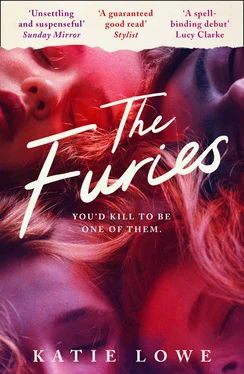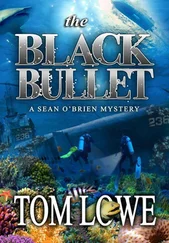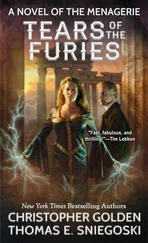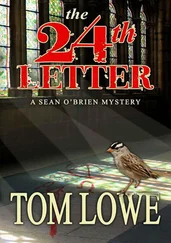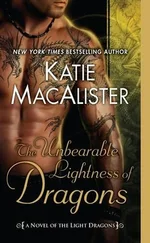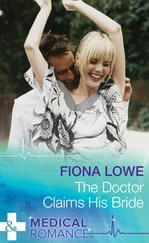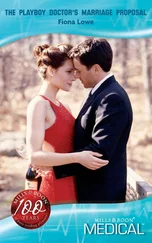Katie Lowe - The Furies
Здесь есть возможность читать онлайн «Katie Lowe - The Furies» — ознакомительный отрывок электронной книги совершенно бесплатно, а после прочтения отрывка купить полную версию. В некоторых случаях можно слушать аудио, скачать через торрент в формате fb2 и присутствует краткое содержание. Жанр: unrecognised, на английском языке. Описание произведения, (предисловие) а так же отзывы посетителей доступны на портале библиотеки ЛибКат.
- Название:The Furies
- Автор:
- Жанр:
- Год:неизвестен
- ISBN:нет данных
- Рейтинг книги:4 / 5. Голосов: 1
-
Избранное:Добавить в избранное
- Отзывы:
-
Ваша оценка:
- 80
- 1
- 2
- 3
- 4
- 5
The Furies: краткое содержание, описание и аннотация
Предлагаем к чтению аннотацию, описание, краткое содержание или предисловие (зависит от того, что написал сам автор книги «The Furies»). Если вы не нашли необходимую информацию о книге — напишите в комментариях, мы постараемся отыскать её.
The Furies — читать онлайн ознакомительный отрывок
Ниже представлен текст книги, разбитый по страницам. Система сохранения места последней прочитанной страницы, позволяет с удобством читать онлайн бесплатно книгу «The Furies», без необходимости каждый раз заново искать на чём Вы остановились. Поставьте закладку, и сможете в любой момент перейти на страницу, на которой закончили чтение.
Интервал:
Закладка:
‘Every possible measure will be taken to get to the bottom of this case, and to prevent anything like this happening in our community again,’ the police chief said, chest puffed, parading peacock-like for the camera. I watched it with my mother, first, and then years later, at home, alone, after an unknown voyeur uploaded it online, grainy in a way that echoed the great tragedies of the TV era. Something about it reminded me of a video I’d found of the Kennedy shooting, the solemn delivery, the echo of the head thrown back. ‘We will investigate every angle, every lead, and every person in contact with this young lady to ascertain the exact circumstances leading up to her tragic death,’ he said.
They didn’t, of course. They ruled out the usual suspects – boyfriends, ex-boyfriends, a deranged parent – all to no avail. Even now, if you search for her name, you’ll find amateur sleuths on message boards posting their own theories – sometimes unhinged, sometimes surprisingly accurate. In the small hours of the night curiosity leads me there, when the darkness falls heavy and my need to see her swells. I’m grateful to the voyeurs of the internet, to the stranger who uploaded the crime scene photos, decades after the fact. They turn my nerves electric, the memory radiating white hot, clear.
For, despite all that followed – the investigation, the questions, the on-camera tears and plaintive words wailed at drooling reporters – even after all these years, I struggle with this one, unspeakable truth: I don’t feel bad about what we did. Any of it. Somehow, I can’t. It’s a crime, of course, and the fear of retribution naturally haunts me. But still, guilt is not the feeling I associate with her death.
Because, in the year I knew her, and in all the events leading up to her death – her murder – I felt more alive than I ever have, before or since. ‘To burn always with this hard, gem-like flame—’ a quote I repeat to my students regularly, though it never seems to capture their imaginations as it did ours – that, Pater said, is success in life. And in the memory of her, I feel that flame burn, hard and bright.
We were close to the divine. We touched gods, felt them flow through our veins. Felt lust, envy, greed, quicken our hearts – but for a while, we were truly, spectacularly alive. It might have been any of us, sitting there like the Madonna on the gently rocking swing. Sheer luck made it her, not me.
Chapter 1
Visitors joked that it was the kind of place people came to die. A town at the end of the world, at the end of the century: the absolute end of the line.
The population ageing, sick and tired: the remains of the old brickworks hollowed by the wind. A little south, a well-known suicide spot, white cliffs that drew the despairing up and then over into the cool, grey sea. Train tracks that stopped abruptly, roads that led to no place but here … These were the obvious signs, I suppose: the root of the joke. But it wasn’t just that.
It was the rain-battered shop fronts with peeling signs; pavilions caked in bird-shit and graffiti. The grey beaches, equal parts sand and shards of glass, crumpled beer cans and plastic bags. The arcades on the promenade, Caesar’s Palace, Golden Ticket, Lucky Strike, carpets damp with beer and bleach, copper coins rattling on tin; men smoking in the fruit machines’ lurid glow, hypnotized by the roll and ring. The pale fields of burned grass, barbed wire and brick. The shipping yards, great metal tombs arranged by mechanical beasts; the wilful, leering stench of the fish market. The corrugated bomb shelters, the stone mermaid, face worn away by the wind.
This is where I spent my youth, and found myself fixed, like a figure painted in oils; decay still rolling on, the shore dragged away by the sea. One day it will all be gone, and the world will be better for it.
There is little to tell of the years before I turned fifteen, my childhood quiet and dull, days and years blurring without consequences. My mum stayed home, taught me to read, watched me grow; my dad ran a small shop which, as far as I could tell, sold everything. I would hide in the cool, dark storerooms, plucking neon pens and glittering pencil sharpeners from scratched plastic trays and damp cardboard boxes. Board games, tested by me, playing my shadow. Books read, carefully, spines unbroken, pages held lightly as ancient runes. It sounds lonely, I imagine, but it was a comfort.
When I was eight, Mum said we’d been blessed with a special Christmas gift, and rubbed her swollen belly. I went to the encyclopaedia. Imagined her insides stretching, fists clutching tendons, amniotic sac bursting, tiny fingers crawling out. It’s one of the only Christmases I remember now, as an adult.
It was a girl. A writhing, red-faced, screaming girl with a mass of black hair and cold, grey eyes. She was possessed, her whole life, with a look that suggested she knew more than she let on, little keeper of secrets. She was seven when Dad’s car slipped under the wheels of a truck as he drove us to the beach. He died instantly, she lingering for four days, though she barely looked like herself. Barely looked like a person at all, really, her skin mottled blue, wet stitches carved into her skull.
I, for my part, climbed out of the car, a smudge of blood on my arm (not mine), plucked a damp fragment of bone from my hair (nor this). Brushed away the frost of glass that clung to my skin. Walked away, feeling like I’d woken from a long, dull, dream.
And that, I suppose, was the end. Or the beginning, depending on how you look at it.
Their lives ended, and Mum’s life stopped. Even decades later, when I returned to clean the house after her death, everything remained as it was that day. Wallpaper greying, carpets scorched with wear. The same books on the shelves, same VHS tapes unboxed under the old TV, still emitting a low, static hum. Same tie hanging in a loose knot on the bedroom door, same crumpled papers in the bin, the same last words abandoned mid-sentence on a yellowing page.
‘Perhaps we might consider an alternative approach,’ my dad’s last recorded thought in smudged, black ink. Everything was placed there with memories attached, my dad’s fingerprints and sister’s laugh still covering everything, like a skin that wouldn’t shed.
I, however, felt nothing. Leaving the hospital, nothing; throwing a clod of damp soil into the pit, soft thump on varnished pine, nothing. Mum weeping on the sofa, clawing at my hair, pressing damp, hot palms to my face, clinging to my life: still, nothing.
Weeks later, I woke on the sofa to find her staring at me as one might take in a half-expected ghost, lip bitten to the jelly beneath. ‘I thought she was … I thought you were gone too,’ she said, her eyes wet with tears, pointing at a face on the screen that looked like mine, but for the details. Hair dull blonde, hers shining, mine textured, split, like old rope; eyes close as one might find to black, but for a chink of amber in her left iris; lips round, always a little too full for lipstick, which gave me the distinct look of a circus clown. Mine were chipped and ridged white with medicinal balm, a compulsive picking I couldn’t shake, hers blush pink, smooth and smiling to reveal white, un-chipped teeth. I thought, watching her face flicker on the screen, that she was a better version of me – the one I longed to be. The artist’s ideal, brush softly smoothing my faults, delicate touch between the lines.
‘Renewed concerns for the missing teenager Emily Frost, who disappeared exactly one month ago today. Her whereabouts remain unknown, and her family have issued a new appeal for any information relating to her disappearance.’
I watched the stock footage, the familiar cliffs, the too-familiar edge. Nobody bothered to count the suicides these days. Emily had last been seen walking there, at the highest point.
Читать дальшеИнтервал:
Закладка:
Похожие книги на «The Furies»
Представляем Вашему вниманию похожие книги на «The Furies» списком для выбора. Мы отобрали схожую по названию и смыслу литературу в надежде предоставить читателям больше вариантов отыскать новые, интересные, ещё непрочитанные произведения.
Обсуждение, отзывы о книге «The Furies» и просто собственные мнения читателей. Оставьте ваши комментарии, напишите, что Вы думаете о произведении, его смысле или главных героях. Укажите что конкретно понравилось, а что нет, и почему Вы так считаете.
